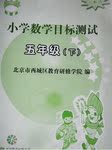题目内容
Before you pay a visit to a place of interest, look in your local library ______ a book about it.
A. on B. at C. for D. to
C。本题考查介词。
【句意】在你参观一个名胜之前,在当地图书馆里查找一本相关的书。介词for 经常用来表示目的,为正确答案;其他几个介词均有此意,排除。

 天天向上一本好卷系列答案
天天向上一本好卷系列答案 小学生10分钟应用题系列答案
小学生10分钟应用题系列答案 目标测试系列答案
目标测试系列答案It’s good to make mistakes, and here is why.
First of all, mistakes are a clear sign that you are trying new things. It’s always good to try new things because when you are trying new things you are growing. If you never try anything new, how can you improve? How can you expand? The simple answer is “You can’t”. Look around you. With very few exceptions, either everything you see in your physical world or every single detail of every single thing is the result of someone trying something new.
Another good thing about mistakes is this: When you are making mistakes, you are learning. Consider this: Edison failed 10,000 times before he perfected the light bulb. When asked how it felt to fail that many times, he said that he hadn’t failed 10,000 times, but rather had learned 10,000 things that didn’t work.
Finally, when you make a mistake you are much closer to success. Why?
Because when all is said and done, you will have tried some number of things before you succeeded. Every time you make a mistake you eliminate one of those things and are one step closer.
But this all doesn’t mean that you should go ahead without considering the consequences of a mistake. Quite the contrary, when you try something new you have to be willing to set some reasonable limits so that in the event that it doesn’t work out the way you want it to, you will be in a position to try again.
We all have limited resources in the form of time and money so don’t blow them all on one approach to a problem. Realize that it probably won’t be perfect the first time and allocate (分配) these resources appropriately so you can learn, make corrections, and try it again. Only by accepting and using your mistakes in this way can you make significant advances in your business and your career.
There is an old saying that goes, “If you’re not making mistakes, you’re not trying hard enough.”
So go forth and make mistakes. And learn. And grow. And prosper(成功).
1.From the second paragraph, we can conclude that _______.
|
A.mistakes are unnecessary for development |
|
B.we are afraid of trying new things |
|
C.it’s common for people to make mistakes |
|
D.mistakes are better than not trying |
2.The underlined word “eliminate” means _______.
|
A.avoid |
B.remove |
C.accept |
D.solve |
3.According to the article, one thing you should pay attention to about making mistakes is .
|
A.avoiding making the same mistakes |
|
B.accepting the punishment willingly |
|
C.taking consequences into account |
|
D.trying things out one by one |
4.What would the writer probably suggest we say to ourselves when we make a mistake?
|
A.Never mind, I can always try again. |
|
B.I’d better stay out of trouble. |
|
C.Ok! Now I can learn something. |
|
D.Look at this mess. Anyone would be upset. |